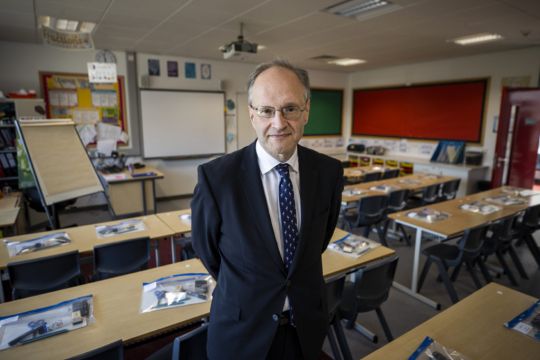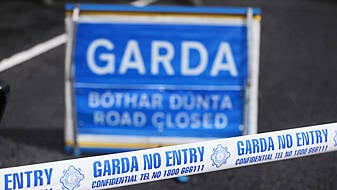All scheduled GCSE and A-level examinations in Northern Ireland will be cancelled, Stormont's education minister has confirmed.
Peter Weir said work is underway on alternative awarding arrangements.
It comes amid stricter lockdown measures to stop a rise in transmission of coronavirus and prevent hospitals from being overwhelmed by new cases.
Mr Weir said all mainstream education providers will be asked to provide remote learning until the half-term break in the middle of February.
This is a very sad day for education, a sad day for young people
The senior Democratic Unionist said: “This is a very sad day for education, a sad day for young people.”
Special schools are to remain open as usual, while vulnerable young people and the children of key workers will have access to schools for supervised learning.
Mr Weir also announced that provision in lieu of free school meals will be made, while childcare settings will remain open.
The minister told the Stormont Assembly the decisions were “not taken lightly”.
“We must have regard to the prevailing public health situation, and the need to reduce overall community contacts,” he said.
“I will return schools to face-to-face learning as soon as the public health situation prevails.”
Debate
Schooling has dominated the debate over Northern Ireland’s tighter new measures.
January’s tests for pupils seeking to transfer from primary to grammars were cancelled on Tuesday, but hours later a date was set in February.
Other new restrictions to combat the pandemic have been agreed by the Northern Ireland Executive.
Stay-at-home advice is to be put into legislation from midnight on Thursday, with additional powers being given to the Police Service of Northern Ireland (PSNI) to enforce the measures.
Household mixing will be reduced to just one other household or social bubble.
People need to follow new rules carefully to prevent the spread of the highly infectious variant of coronavirus, Northern Ireland’s chief scientific adviser has warned.
A spike in hospital admissions is not expected to peak until the final two weeks of January, Professor Ian Young added.

He attributed the rise mainly to increased socialising before fresh lockdown measures, rather than the virus mutation prevalent in southern England.
Belfast’s Nightingale hospital is being expanded, as another 1,985 people tested positive in the region on Wednesday with 13 more deaths recorded.







